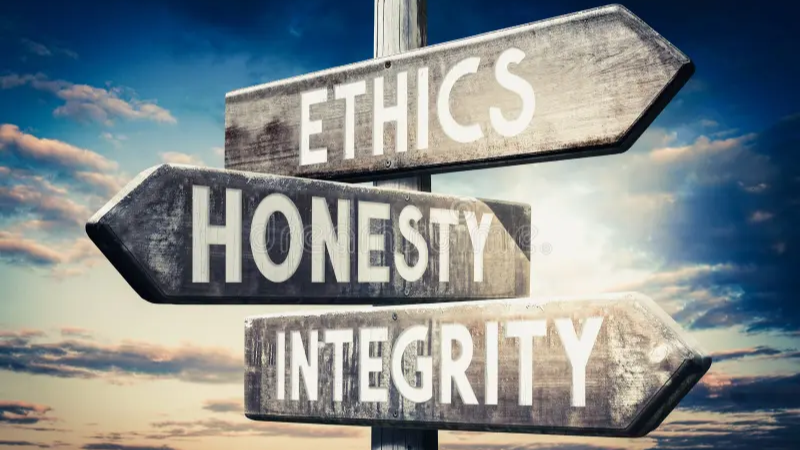Ethics in Leadership: The Non-Negotiable Foundation of Success
Ethics in leadership isn’t just a buzzword—it’s the invisible thread that holds everything together. It defines our decisions, shapes our influence, and impacts the lives of those we lead. Yet, the journey to becoming an ethical leader requires more than good intentions. It demands awareness, courage, and reflection.
What Is Ethical Leadership?
At its core, ethical leadership is about aligning our actions with our moral compass. It’s not just what we do when others are watching but how we lead ourselves when no one is around. It’s about making decisions that serve not just our interests but also the greater good.
As leaders, our role is influential—what we model sets the tone for our teams and organizations. When we lead ethically, we foster trust, inspire integrity, and create environments where people feel safe to bring their best selves to the table.
But how do we arrive at this clarity? It begins with self-reflection and an understanding of the ethical frameworks that shape us.
Part 1: The Beliefs We’ve Been Told
Most of us grow up internalizing societal norms and values without questioning their origins or impact. These beliefs shape our understanding of what’s “right” and “wrong,” often going unchallenged until we’re confronted with a situation that doesn’t sit well with our conscience.
Take a moment to think about it:
How often do we follow the rules simply because “that’s how it’s always been done”?
How many of our decisions are rooted in fear of disrupting the status quo?
Many leaders fall into the trap of groupthink—a psychological phenomenon where individuals conform to the collective mindset to avoid conflict.
It’s easier to go along with the group than to risk standing out or is it?
One of the most striking examples of this is the infamous Zimbardo Prison Experiment. This psychological study revealed how quickly individuals could abandon their personal ethics when placed in a system that normalized unethical behaviour. The guards in the experiment, influenced by the group dynamic, displayed alarming cruelty toward the prisoners, underscoring how systems—and unchecked power—can erode ethical boundaries.
Part 2: Questioning the Norms
True leadership begins when we challenge these norms. It’s not about rebellion for the sake of rebellion—it’s about critically examining the “why” behind our actions and decisions.
Consider the U.S. Army in 1945. During World War II, studies revealed that only 1 in 5 soldiers fired their weapons in combat. Why? The moral and psychological weight of taking another life was too great for most to bear.
To address this, the military introduced training methods designed to dehumanize the enemy, making it psychologically easier for soldiers to fire. While effective in increasing fire ratios, these methods raised profound ethical questions about the manipulation of human values for operational goals.
This example is a powerful reminder of how systems can influence ethical decision-making—sometimes for better, often for worse. As leaders, we must remain vigilant, questioning whether the systems we operate in align with our values or compromise them.
And in my experience, questioning systems is one of the bravest acts we can do.
Building Ethical Awareness
Ethical leadership requires us to move beyond compliance and toward consciousness.
Often we’re not reflecting on ethics unless there is an ethical issue or problem. Proactively taking time to consider the following can support you in tuning up your moral compass and aligning your actions with ethical maturity.
Reflect on Your Moral Compass
Ask yourself:
What values guide my decisions?
What values guide my decisions?
How do I reconcile personal beliefs with organizational goals?
2. Challenge Groupthink
Create spaces for open dialogue. Encourage dissenting opinions and celebrate those who have the courage to speak up.
3. Model Integrity
Consistency in words and actions is critical. When you embody ethical leadership, you give others permission to do the same.
4. Examine the System
Look at the structures and policies within your organization. Are they designed to support ethical behavior, or do they inadvertently promote compromise?
5. Ethics in leadership is not a destination—it’s an ongoing journey.
It requires humility to admit when we’ve strayed and the courage to realign with our values.
Ready to elevate your leadership and create a thriving workplace? Let’s connect to explore how we can build a high-performance culture that attracts and retains top talent—without burnout.
About the Author
Shauna Moran is an internationally recognized expert in workplace well-being, burnout prevention, and leadership development. She specializes in two key areas: empowering women leaders and fostering sustainable, high-performance workplace cultures.
With a proven track record, Shauna has helped over 1,000 leaders shift from stressed managers to resilient, high-impact executives. Her clients report:
✅ 60% reduction in workplace stress while enhancing organizational effectiveness.
✅ 40% more time for strategic work—without increasing their workload.
✅ 85% retention rate for high-potential leaders within 18 months.
Most recently, she helped an organization double its retention rate, proving that well-being and performance go hand in hand.
Shauna has also guided over 200 women leaders in transforming from overwhelmed managers into confident, influential executives, with an 85% success rate in securing promotions within 18 months.
Ready to build a thriving, resilient workforce?

